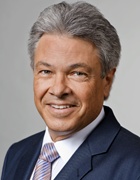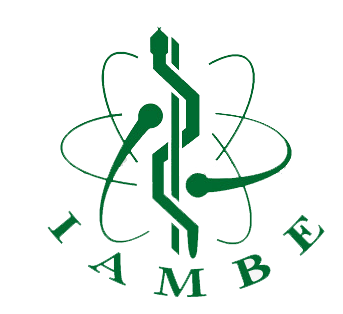
Professor Erich Wintermantel, born in Baden-Wurttemberg, studied medicine at the University of Tubingen in Germany and was a visiting student with Prof. Yasargil, the founder of microneurosurgery at the University Hospital in Zurich from 1977 -1981. He earned an M.D. PhD. degree, having developed a new rapid microvascular surgical technique. He was a research fellow at the University of Western Ontario in London, Canada (Prof. Charles Drake), the University of California Los Angeles (Prof. Bill House and House Ear Research Institute), the University of Montreal (Prof. Jules Hardy) and the University of Toulouse, France (Prof. Guy Lazorthes). Following clinical training in neurosurgery with Prof. Loew in Homburg/Saar, in abdominal and orthopedic surgery at university hospitals in Germany, he joined the Swiss Federal Institute of Technology (ETH Zurich) in 1986 as senior assistant and scientific adjunct in mechanical engineering and lecturer in the design and manufacturing of medical implants and devices. He received his habilitation at ETH Zurich in 1991 in biomaterials science and engineering, and was an invited visiting scientist at the Massachusetts Institute of Technology (MIT) in 1991 and in 1992. At MIT he became a member of Langer Labs working with Professor Robert Langer, a pioneer and world leader in biomedical and process engineering, in developing degradable scaffolds for tissue engineering and drug release systems.
Erich Wintermantel became full Professor at ETH Zurich in 1992 as well as chairman of the Chair of Biocompatible Materials Science and Engineering and he served as Head of the ETH Institute of Construction and Design Engineering (120 collaborators, focusing on carbon fibre reinforced polymers / composites) from 1995 -2000. Having been invited to contribute to the High-Tech-Offensive Bayern with designing a Center of Medical and Biomaterials Engineering including a technology transfer company on campus he joined the Technische Universitat Munchen (TUM) in 2000 for designing and building up the new Central Institute for Medical Engineering and he initiated together with 9 faculties and 60 professors and lecturers the new Masters Curriculum in Medical Engineering at TUM, the first one of its kind on university level in Germany. Erich Wintermantel holds the Chair of Medical Engineering at TUM, has been Founder in 2000 and CEO of the Central Institute for Medical Engineering from 2000 until 2005 and member of its Board of Directors from 2005 on. He initiated the first two Junior Professorships at TUM and integrated them into Medical Engineering (Prof. Hugel, biophysics and Prof. Forster-Henlein, mathematics). He has been Founder in 2003 and served as CEO of ITEM GmbH, a technology transfer company, from 2003 until 2007.
He is founding member and former president of the Swiss Society for Biomaterials and he lists more than 600 written and 700 oral publications, including 32 patents and trademarks. He has headed more than 1300 semester-, diploma-and master theses, 60 Ph.D. theses and maintains memberships with 26 national and international scientific societies, among them the German Societies for Thoracic, Heart and Vascular Surgery, for Orthopedics and Orthopedic Surgery, for Surgery and for Biomedical Engineering as well as Verein Deutscher Ingenieure VDI, the American Chemical Society ACS and the Society for Biomaterials (USA). Being a Fellow of the International Academy of Medical and Biomedical Engineering IAMBE he has been member of several governmental and industrial boards. He is author and editor of all editions of “Medizintechnik -Life Science Engineering” a standard monography in Medical Engineering in German language (2500 pp.). His financial responsibility lists up to Euro 46 million, his personnel responsibility summarizes 700 collaborators. As a result of a nationwide competitive evaluation and for his professional advisorship he has been awarded KPMG/UNICUM Professor of the Years 2006, 2007 and 2008. Wintermantel initiated and maintains two annual technological conferences, on national and international levels, with modern polymer technologies for Life Sciences.
His main research interest is the biocompatibility of new materials, process engineering applied to materials, mainly polymers, structure and surface modification of polymer materials, new properties of fibre reinforced, multiphase and porous materials, namely for microinjection molded parts and materials for intraarterial stenting systems, cardiovascular systems and middle ear implants, for tissue engineering and tissue repair including carrier systems for postnatal stem cells. Recently manufacturing and production related research was added, mainly sterile production of thermoplastics. The main applied research focus is the clinically applicable implant, instrument, or device system being compatible with modern imaging techniques, i. e. NMR and CT scanning. For future work he concentrates on microinjection molding for microdevices and on the technology link between medical, pharma, food and cosmetics engineering as all of these Life Sciences address outer or inner surfaces of the human body and biocompatibility.
